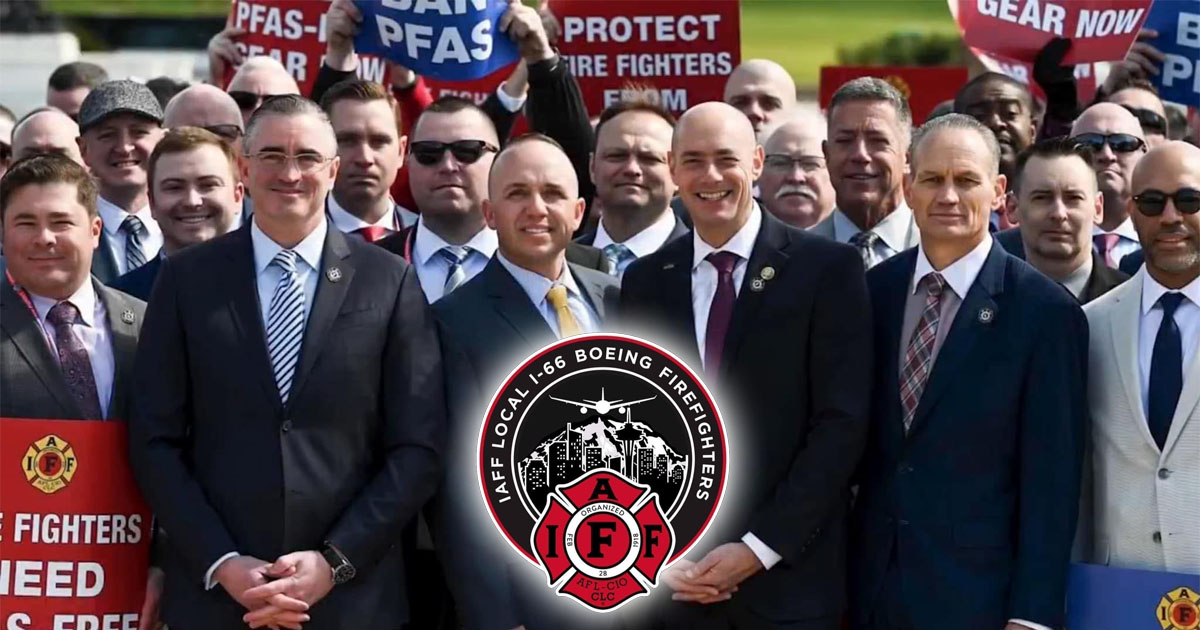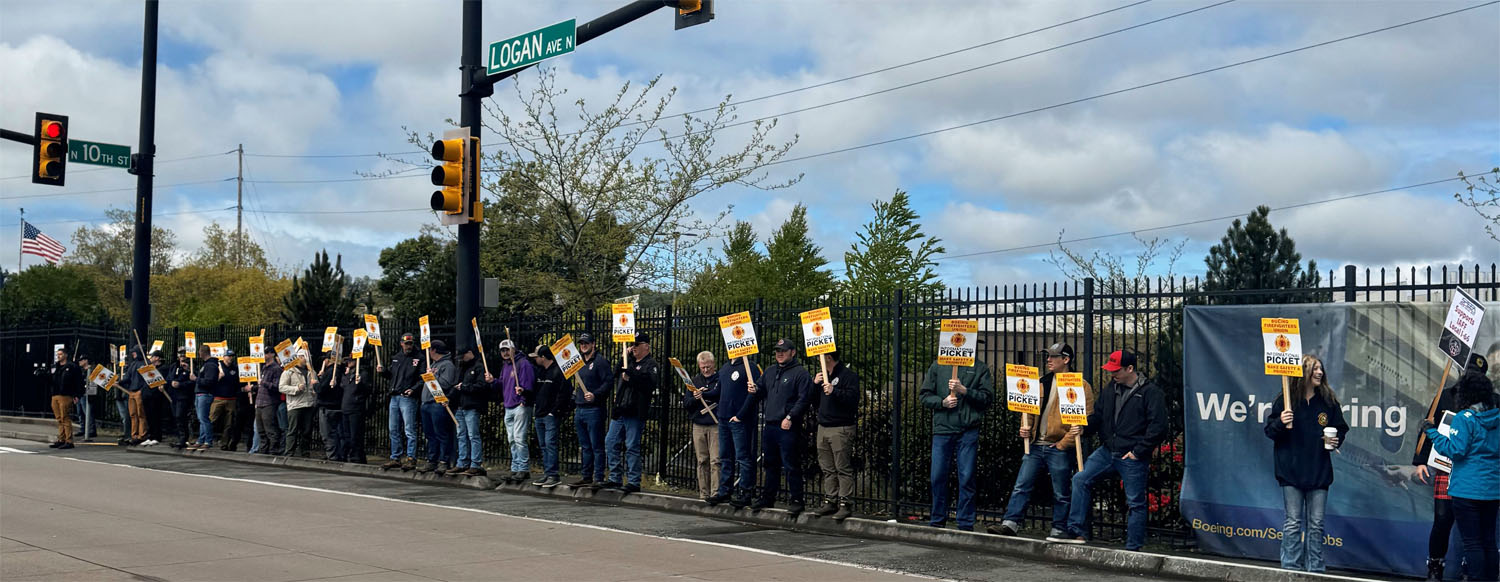LOCAL
Boeing says it will LOCK OUT its fire fighters
As it struggles to restore culture of safety, Boeing says it will lock out its frontline safety workers at 12:01 a.m. Saturday, May 4
The following breaking news release is from IAFF Local I-66:
RENTON, Wash. (May 1, 2024) — In the midst of the greatest safety crisis in the company’s history, the Boeing Co. is threatening to lock out its front-line safety workers — its unionized fire fighters — in a contract dispute.
Boeing says it will force the fire fighters to leave their stations at 12:01 a.m. Saturday, May 4. That’s exactly 60 days after more than 80 percent of the members of International Association of Fire Fighters Local I-66 rejected the company’s “final” contract offer for the first time. The firefighters voted to reject the offer again last month.

Talks toward a third contract offer failed almost immediately on Monday, Local I-66 President Casey Yeager said.
“We presented Boeing with a reasonable, meet-in-the-middle proposal,” Yeager said. “Boeing refused to consider it. The company told us we’ll have to accept the offer we’ve already rejected twice, because we won’t get anything better. Now with this lockout threat, it’s trying to bully us into accepting a bad contract.”
Here is a message of solidarity from IAFF General President Edward Kelly:
The offer IAFF Local I-66 members already rejected included:
- Pay offers that were 20 percent below average pay at other Puget Sound fire departments.
- A pay scale that would force union Fire Fighters to work 19 years to reach the top. (Seattle Fire Fighters top out in 3.5 years.)
- A staffing plan for Boeing fire stations that is significantly below international safety standards.
As of Wednesday morning, no new talks have been scheduled between Boeing and the union before the 12:01 a.m. Saturday deadline.
On Monday, union Fire Fighters from as far away as Spokane and Vancouver, Wash., joined their local colleagues and members of other unions at Boeing for informational pickets outside Boeing factories in Everett and Renton. It was the first time in the memory of anyone with the Washington State Council of Fire Fighters that an IAFF union local had been forced to picket against an employer during contract talks.
“There hasn’t been a Fire Fighters strike anywhere in the United States since the ’80s,” Yeager said. “We’re Fire Fighters. It’s not what we do, but with this lockout, Boeing’s going on strike against us.”
Yeager said Local I-66 members are determined.
“If we’re going to make history, there’s no better time than now,” he said. “If Boeing can afford to pay one disgraced CEO $33 million during a safety crisis, it can afford to pay our Fire Fighters enough to live a middle-class lifestyle.”
Local I-66 represents some 160 Fire Fighters, who staff Boeing fire stations in Auburn, Everett, Renton, Seattle and Moses Lake. They are a critical part of Boeing’s production system; specially trained Boeing Fire Fighters are on hand every time a Boeing-built aircraft is fueled or takes off on a test or delivery flight. The Fire Fighters are first responders to accidents or medical emergencies at Boeing facilities, responding to some 200 emergency calls on and off Boeing property each month. They do critical fire-prevention work that has saved Boeing billions of dollars in fire insurance premiums.
###
NOTE: A lockout is a tactic some companies use to put financial pressure on employees who are considering a strike. It’s easiest to think about it as a sort of reverse strike; instead of workers initiating a work stoppage, the employer does. Unions can, and often do, establish picket lines outside their workplace during a lockout. Under Washington state law, locked-out workers may be eligible to receive unemployment benefits. Like strikes, lockouts are resolved when the two sides agree to resume negotiations and reach an agreement that union members are willing to approve.






